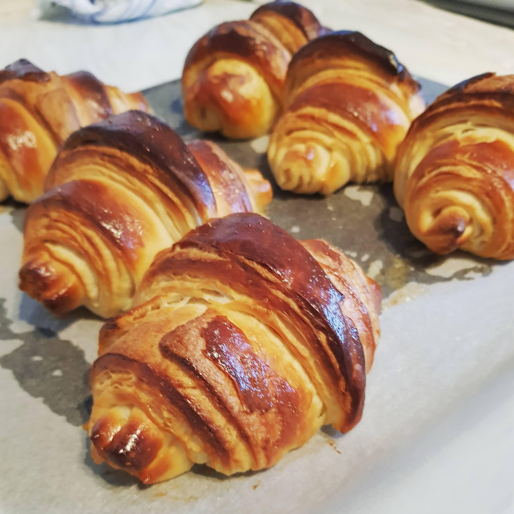
Stress Mechanics for Graduate Students
A highly rigorous investigation into the avoidance of cracking under strain
MIT is a crazy place, there’s no doubt about that. But just because you’re in a crazy place doesn’t mean that you’re crazy. During grad school, everyone has days (or weeks, or months…) where things might not be going so well. Maybe your classes are really intense, or the data you’re collecting doesn’t make any sense, or your advisor just keeps on sending you more edits for that paper you’re working on.
In my fourth year here, I’ve realised that everyone around me has come up with their own ways of dealing with stress. I started paying attention to the methods that my friends use to stay sane and asking different people how they relax – partly because it was interesting how varied the answers were, but mostly in case any of them had come up with a magical solution for relaxation that I hadn’t thought of yet and might be able to steal.
One of my housemates is a chronic ‘procrasti-baker’, which makes her the ideal person to live with. Her grading responsibilities might be driving her up the wall, but it’s probably going to result in a fresh batch of brownies on the kitchen table. I mysteriously have no complaints. Other friends have also reported the phenomenon that baking or cooking endeavours have never seemed more appealing than when deadlines are looming. I tried out procrasti-baking over winter break, but it turns out that proper croissants take 3 days to make and that you should really just buy them from the supermarket. Lesson learned.

My officemate started learning about mindfulness and yoga during her PhD, and it’s amazing to see how calm and happy she stays even when her research is extra challenging. This year she got a yoga teacher certification, so now she’ll be in the unusual position of being qualified to teach both astrophysics and yoga after graduating! She organized drop-in meditation classes during IAP, which gave me a convenient way to try it. I found that taking half an hour to do something mindful makes me feel calmer and better able to handle whatever the rest of the day throws at me. This is definitely something to add to my stress relief toolbox. Another friend has started sending guided meditations to my phone when I’m stressed, which is a great reminder to slow down and take a moment for myself.
Another example – every afternoon, my labmate disappears from his office, and at first we assumed he liked to take really leisurely lunch breaks. Eventually we found out that he goes to play soccer every day, which is probably why he never seems worried about anything. I tried playing soccer with him in the corridor, but after running into a lot of random objects and acquiring purple bruises, I decided that it might be better suited for more physically coordinated people… or at least that I shouldn’t play soccer in corridors.
In the last year, I’ve taken up running, which offers the convenience of being able to head out whenever I feel like it instead of having to trek to the gym. My friends will now tell you that I spend all my time talking about races and trying to persuade everyone to run with me – I think it’s a great way of getting your brain to shut up for a little while, and most of us could use that. There’s a quote from Haruki Murakami’s memoir What I Talk About When I Talk About Running that I like because it sums up how running makes me feel: “I’m often asked what I think about as I run. Usually the people who ask this have never run long distances themselves. I always ponder the question. What exactly do I think about when I’m running? I don’t have a clue.”
Of course, there are inevitably times when all of these options sound too much like work. That’s when my final secret failsafe option comes into play: drinking coffee and complaining to my friends. This is one of the most universal answers I received during my highly scientific survey of grad student stress-busters, and I can confirm from personal experience that it’s highly effective. Sometimes there’s simply nothing you can do right now: your experiment didn’t work right, or your conference paper was rejected, or your lab equipment is waiting on a repair. It’s out of your hands!
One of the unifying experiences of grad school is knowing you can text people mid-afternoon and find someone who will take a break to grab a coffee and vent about life with you, and that you’ll both come out of it feeling better. Building a social circle that can offer support during grad school is one of the most important things I’ve done, even though sometimes it seems frivolous in comparison to everything else on my to-do list. Making new friends has been one of my favorite parts about MIT, and as my investigation has revealed, they have plenty of good ideas to share about how to make it a more enjoyable place.
This story was originally posted on the MIT Grad Admissions blog.

